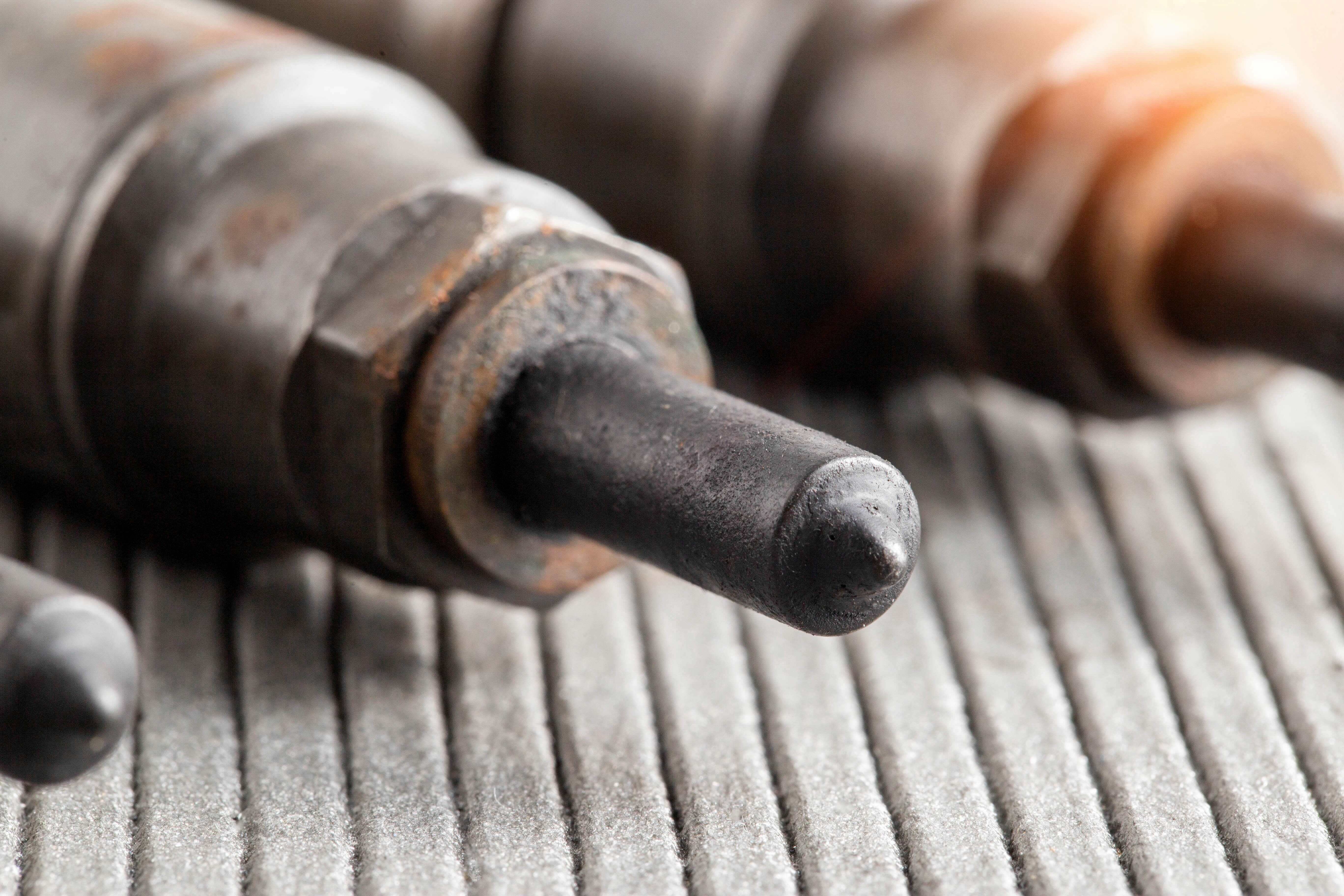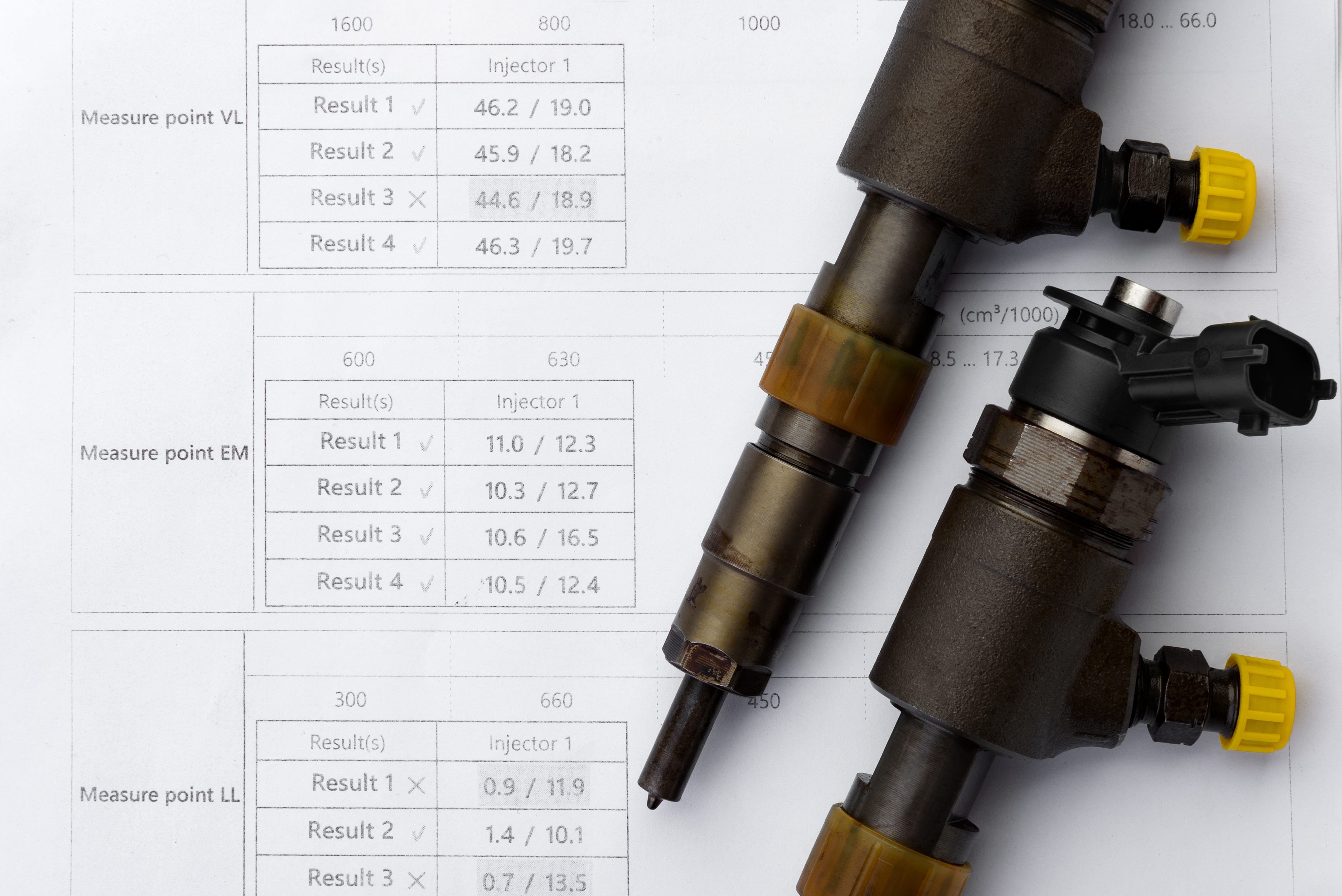Diesel engines have many nuances when compared to their gas counterparts, fuel injectors being one of them. Unlike fuel injectors used on direct injection gasoline engines, diesel injectors often have a higher failure rate and shorter lifespan due to their more extreme operating conditions. When these injectors fail, it can lead to a cascade of performance issues, increased emissions issues, and even engine damage.

Understanding the common causes of diesel fuel injector failure, recognizing the symptoms, and knowing how to diagnose these issues is crucial in maintaining your engine's performance and longevity. This article provides a comprehensive guide to understanding and managing diesel fuel injector problems.
Common Causes of Diesel Fuel Injector Failure
Diesel fuel injectors are subject to harsh operating conditions, which can lead to several common causes of failure. Below is a list of the most common conditions that lead to failed injectors. This list is not only intends to give you an idea of how your injectors could have failed but also provide you with some key ways to prevent premature injector failure from happening to you.
Contaminated Fuel
Diesel fuel can carry impurities such as dirt, water, and debris. Each of these can clog or damage injectors over time. Fuel filters are designed to prevent these contaminants from reaching the injectors, but when they become clogged or fail, the risk of injector damage increases.
Poor-quality Fuel
Diesel fuels that do not meet industry standards can lead to the buildup of deposits within the injectors, affecting their ability to deliver fuel properly. This can result in incomplete combustion and increased wear on the injector components.
Wear and tear
Diesel injectors are mechanical parts that endure constant stress and high pressure. Over time, the internal components can wear out, leading to a gradual decline in performance and eventual failure. Even idling your truck can affect the lifespan of your injectors. Try to limit idling as much as possible to save the life span of your injector.
Overheating
Inadequate cooling or excessive combustion chamber temperatures can damage your injectors. Coolant temperatures over 480ºF, and exhaust gas temperatures over 1200ºF indicate combustion chamber temperatures that could cause injector components to expand and warp, disrupting their precise operation.

Common Symptoms of Diesel Fuel Injector Failure
Recognizing the symptoms of diesel fuel injector failure is crucial for timely intervention. Whether you just got a set of new injectors put in or you think yours could be on their way out, here are the signs you always need to be on the lookout for.
Poor Engine Performance
If your injectors are failing, you are likely to experience a noticeable decrease in power, acceleration, and overall engine responsiveness. The engine might struggle to reach higher speeds or maintain consistent performance under load.
Increased Fuel Consumption
Faulty injectors can cause an imbalance in the fuel-air mixture, leading to incomplete combustion and higher fuel usage. This inefficiency not only affects performance but also increases operating costs.
Difficulty Starting
Weak or failed injectors often result in long cranking or a no-start condition due to poor combustion efficiency.
Engine Misfires
Rough idling or misfire/knock sensor engine codes are also indicative of injector problems. If the injectors are not delivering fuel evenly, the engine may run unevenly, leading to a rough or shaky idle. Engine misfires occur when one or more cylinders do not fire properly due to inadequate fuel delivery.

High Balance Rates
Balance rates, also known as injector balance rates, indicate how much fuel each injector is delivering relative to the others. Referring to injector balance rates to diagnose a failed or weak injector can be an effective method. However, properly diagnosing a failed injector using this method can often be confusing. How far out of balance is acceptable and what does the balance rate even mean?
As a general rule of thumb to go by, balance rates should always be checked at idle with the engine fully warmed up. With these factors in place, we can begin to look at the balance rates for each injector. Typically, balance rates are based on a baseline or expected value. Significant deviations from this baseline can signal problems with one or more injectors. A deviation of (4.0) mm3/stroke or higher is a good indication that your injector is out of balance. Remember that an out-of-balance reading does not necessarily indicate which specific injector is causing the out-of-balance condition. One good injector could be pulled out of balance by 7 other bad injectors.

Smoke and Increased Emissions
Excessive smoke from the exhaust is another common sign of injector failure. If the injectors are delivering too much or too little fuel, it can result in incomplete combustion, producing black, white, or even blue-ish smoke from the exhaust. Faulty injectors can also lead to higher output of pollutants like soot and NOX, which can contribute to failing emissions tests and increase environmental impact.

CP4 Pump Failure
While not exactly a symptom of fuel injector failure, CP4 failure is certainly a sign of the future. When CP4 pumps fail they send loads of contamination through your entire fuel system, inevitably making its way to your fuel injectors. If you've experienced a CP4 failure you need to assess and more than likely replace your entire fuel system. Symptoms of bad injectors can also be a sign of CP4 failure looming so don't take any of these symptoms lightly.
Vehicle-Specific Fuel Injector Failure

5.9L Cummins
A common issue experienced by 2nd and 3rd Gen 5.9L Cummins owners is a delay in the drop in engine RPMs when you let off the throttle. This delay can often feel like the truck on the verge of running away. This is a common issue that stems from a damaged injector needle.
6.6L LB7 Duramax
Being the first generation Duramax comes with its downsides, the LB7 injector location is one of them. Due to the injectors being located inside of the valve cover, they subject your entire oil system to fuel contamination if your injectors begin to leak. However, this is easily diagnosed by blotting your dipstick on a paper towel. When oil and gas encounter a medium like a paper towel, the diesel fuel will separate farther than the oil stain and a noticeable color variation will be present in the wet areas.
6.6L LLY Duramax
While not as detrimental as a failure on the LB7. The LLY's fuel injectors are also known to suffer from injector leakage due to issues with the nozzle or injector body. Failed injectors on the LLY specifically are also known to throw P0087 codes while loaded down or towing.
6.4L Powerstrokes
A common symptom seen on these Powerstroke platforms is fuel pooling around the injector ports. Often misdiagnosed as a failed injector, this is typically caused by failed fuel side injector o-rings and does not require the replacement of the actual injector itself.
6.0L Powerstrokes
Commonly referred to as "Sticktion", an abbreviation for static friction, is a known issue where oil accumulation around the spool valve causes the valve to stick or move slowly. This sticking can lead to missed or delayed fuel injection events, resulting in poor cold starts and reduced performance at low temperatures. Over time, as the spool valve and its bore wear, the problem can worsen due to increased oil accumulation.


When and How to Diagnose Diesel Fuel Injector Issues
Unlike your timing chain or fuel filter, your diesel fuel injectors don't come with an expected lifespan from the factory. Instead, since different fuel injectors on different trucks experience different operating conditions, diesel fuel injectors typically come with a recommended inspection interval of every 100,000 miles. However, it's not uncommon for injectors to fail far before this and even last very far past this. So once you've identified that you need to diagnose your injectors what do you do?
Where to start
Diagnosing diesel fuel injector problems involves a systematic approach to identify and address the underlying issues. Start with a visual inspection of the injectors and related components. Look for signs of physical damage, leaks, or corrosion. Check the condition of the fuel filters, as clogged filters can contribute to symptoms of a failed injector or result in injector failure in the future.
Listen To Your Engine
Being in tune with the way your engine sounds when healthy can provide valuable clues. Abnormal noises, such as clicking or knocking sounds, can indicate problems with the injectors or their components. Additionally, use a scan tool to check for any diagnostic trouble codes (DTCs) related to the fuel system. These codes can help pinpoint specific injector issues or other related problems.
Perform a Fuel System Test
This is crucial for diagnosing injector issues. This can involve measuring fuel pressure, flow rates, and injector performance using gauges, observing spray patterns, and taking fuel volume measurements. These tests are a key factor in identifying issues such as clogged, failed, or malfunctioning injectors as well as fuel pressure issues, which can affect injector operation.
When All Else Fails
Computer diagnostics may be necessary for complex issues. If the problem persists or if you are unable to diagnose it yourself, consult a qualified diesel technician. They can perform advanced diagnostics, including injector flow tests and performance analysis, to accurately identify and address the problem.
Conclusion
Diesel fuel injector failure is a relatively common issue that can impact engine performance, efficiency, and reliability. By understanding the common causes of injector failure, recognizing the symptoms, and employing effective diagnostic methods, you can take proactive steps to maintain your engine to continue operating in optimal condition. Regular maintenance, including fuel filter changes, using high-quality fuel, and diagnostic check-ups can all help prevent injector problems and ensure the longevity of your diesel engine. If issues arise, timely diagnosis and intervention are key to avoiding costly repairs and maintaining the performance of your vehicle. For more help with your fuel injector issues give us a call at (815)-568-7920, Monday through Friday 8 am-5 pm, and we would be happy to chat!






